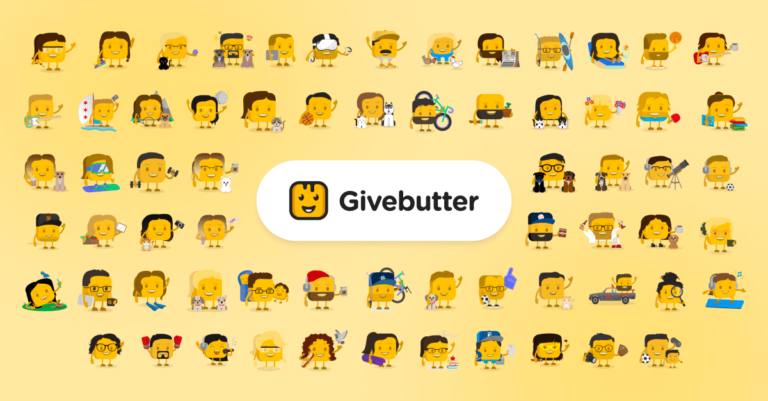Givebutter started in a George Washington University dorm in 2016 as a software solution to make nonprofit fundraising more transparent and fun. Eight years later, the company is profitable and just raised $50 million, as momentum for nonprofit startups appears to be growing.
The company’s co-founder and CEO, Max Friedman, has raised funds for various campus organizations, ranging from raising for GW Greek life to raising for national nonprofits like TAMID. Friedman told TechCrunch that no matter the size or scope of the organization he was fundraising for, they all had the same problem: They were all using a disparate mix of single-solution technology software that didn’t really improve the process and were often accompanied by hidden fees.
“We realized that nonprofits use many different tools to solve different problems, and what we can do for the sector is bring everything under one roof,” Friedman said. “This exists in catering and in e-commerce; there (was) no Shopify or Toast for nonprofits.
The result was Givebutter, a CRM platform for nonprofits that strives to be transparent and comprehensive. It offers marketing resources, ways to track donors, fundraising tools for a variety of different strategies, and payment processing. Nonprofits can either use Givebutter for free, if their fundraising campaigns provide a space for users to donate to Givebutter, or organizations pay a platform fee of 1% to 5%.
“From day one, we had customers,” Friedman said. “It was very clear that there was a high demand for great fundraising tools and not a quality set of tools for changemakers. »
The startup raised $50 million this week from Bessemer’s Venture Partner’s BVP Forge Fund with participation from Ardent Venture Partners. Friedman said the money would be used for marketing to help the startup scale, as the company has grown to this size so far largely with almost zero marketing expenses.
What initially interested me about this deal – beyond the fact that the company is profitable thanks to a largely donation-based revenue system or the fact that it calls its employees “Butter Slices” – is t was that it was a significant funding round in the nonprofit technology sector. , which has been appearing a lot more lately.
At the last YC Demo Day, two startups, Givefront and Aidy, were developing technology for nonprofits. While these companies aren’t the first nonprofit startups to go through YC, they are among the first to create software for nonprofits; many former YC companies in the field are nonprofits themselves, and Givefront and Aidy have absolutely stood out in This year’s cohort dominated by AI and developer tools.
I asked Friedman if I felt like the dynamic in this category had changed since it started eight years ago, and Friedman said that it certainly had and that the time was right for this category . There has been a lot of consolidation in the space recently, particularly when it comes to private equity-backed nonprofit software players like Bloomerang And Bonterra, each of which has made a handful of acquisitions in just the last few years. That leads to higher fees and many nonprofits looking for less expensive solutions, Friedman said. Once people become interested in the sector, he says, they often realize how big the potential market is.
In 2022, Americans gave nearly $500 billion to charity, according to the National Philanthropic Trust, down 3.4% from 2021. There are more than 1.5 million nonprofits and that number is growing, and building even just to get a piece of that market could constitute a huge boon. Givebutter is a good example. The company works with more than 35,000 nonprofits and has processed more than $1 billion in donations, but it’s still struggling to make a dent in the nonprofit sector overall.
“We have about 1 percent market share,” Friedman said. ” It’s incredible. I’m really proud of it, but I also think there are 99% of nonprofits that can benefit from it, and a big part of the reason we raised was to go out and do it.
Givebutter may well start to face more competition down the road. “Nonprofits are incredibly resilient,” Friedman said. “There have been downturns and upturns in the economy for several years and nonprofits have grown. Nonprofits also solve some of the world’s biggest problems. I’m happy to see more people being aware of this and investing in this area.


